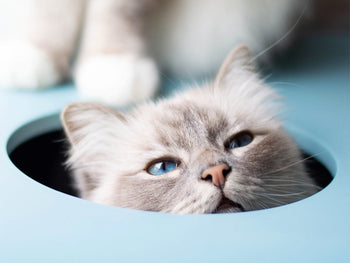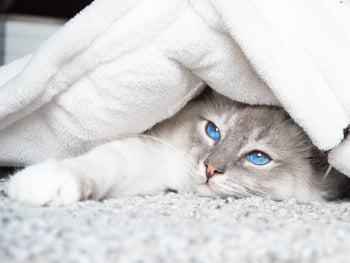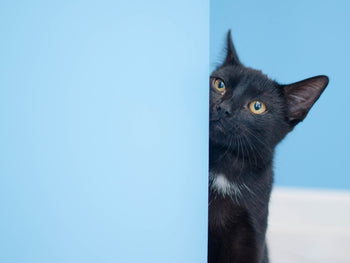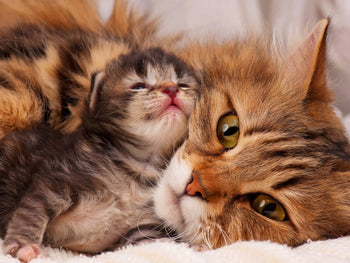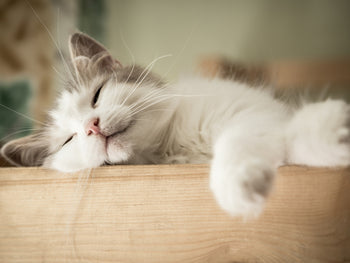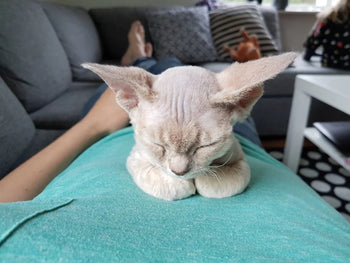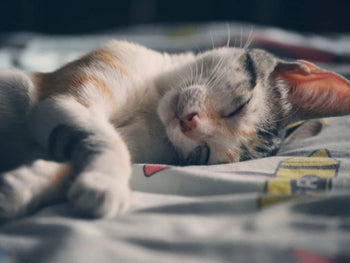
People around the globe tend to think of kittens as adorable balls of fur that like to rest on the couch next to their owner. Such a notion is partially correct: While kittens indeed seem shy and sweet at times, they also represent unstoppable masses of energy with the capability to create epic messes in a blink of an eye. Needless to say, the hyperactivity of the felines is a constant headache to a lot of first-time cat parents. Those that have to clean up after their kittens time and time again all have one question in mind: when will my kitten calm down?
Wonder if your furball is ever going to mellow out? If that happens to be your primary concern nowadays then this article is for you. Down below, you shall find virtually everything that pet owners need to remember about the hyperactivity in kittens including its characteristics, duration and mitigation measures.
Hyperactivity: It's A Phase

Overall, kittens enter a phase called "endless energy" between 3 and 4 months after being born: they eat a lot, grow a lot and play a lot. Around that time, your fluffy friend simply possesses a wee bit too much energy in its small body which spurs it to move without breaks.
So it's quite natural for most kittens younger than 1-year-old to be hyper. Before their 1st birthday, cats should constantly run through the house knocking things down without a care in the world. In fact, some bold pets may even playfully attack people. But as your furball approaches the 1-year mark, it's going to be more relaxed. Of course, a couple of factors such as humans, environments and so on would influence the behaviors of the pets. A few kittens by nature remain somewhat hyper after 1 year.
How To Address The Hyperactivity

After learning the answer to the question of "when will my kitten calm down?", people know that they only to sit tight and wait for the hyperactivity in their kitten to disappear on its own. However, if you want to actively curb the hyperactivity of your kitten, see the following.
-
Consider Investing In Cat Trees
Every pet owner knows that kittens like to hang around elevated spots as such location offer excellent fields of view. Despite the fact that the felines face no danger indoors, they still prefer to observe from high places to detect potential adversaries, plan escape routes,... Because of that, by turning the attention of your kitty to the cat trees, you could easily minimize the damage it causes to your place. For safety reasons, it's of utmost importance that you lock down the cat trees. Unsecured trees might collapse in use and hurt the pets.
-
Set Up Daily Play Sessions
Generally speaking, growing kittens often create all sorts of messes because they need an outlet for their pent up energy. Hence, if you want your fluffy friend to leave the house alone, you should play with it now and then. People must make play sessions as exciting as possible to tire out the felines. The goal is to get your kitten tired so it settles down for a nap. Remember to use toys instead of fingers as you don't want your furball to bite you using its razor-sharp teeth after it matures.
-
Get A Couple Of Toys
Don't have the time to play with your kitty? In that case, grab some toys from pet stores. With the right toys, most kittens could entertain themselves in the absence of their owners. Proceed to rotate the toys every few weeks in order to keep your cat engaged. To be on the safe side, pet owners have to thoroughly assess the toys beforehand to see if they pose a threat to the felines. Drop by forums for cat lovers to see the reviews of the toys then determine which ones suit your kitty.
-
Think About Adopting Another Kitten
Experts recommend that people adopt more than one kitten at once for a variety of reasons, one of them is that kittens in a group would be each other playmate. That means people don't need to spend significant time and effort around the pets. That is why for cat parent that lament over the question "when will my kitten calm down?", adopting another kitten should likely bring immediate salvation. Obviously, with 2 kittens in the house, your suffering may double but the risk is acceptable in most of the cases.
-
Introduce Strict, Violent-Free Discipline
Similar to human babies, kittens need to be disciplined right away if they cause troubles. That being said, refrain from resorting to physical means just to punish your furball as that rarely produce desired results. Instead, if you catch your kitten making mischief, let out a high-pitched "No" and promptly take it into an empty room for temporary isolation. For most of the time, after spending 5 – 10 minutes by itself, your fluffy friend would come to realize that you don't approve of its behavior.
Check us out for further detailed cat's health guide!
Taking Care Of Hyper Kittens

Knowing how to answer the question of "when will my kitten calm down?" is nice but you also must know how to look after your kitten until its hyperactivity subsides. Hyper kittens could injure humans, fellow pets and themselves if cat parents fail to implement appropriate precautions in the house.
-
Make The Interior Kitten Friendly
Falling objects might deal critical injuries to the fragile body of kittens which means you must re-arrange the interior to accommodate your fluffy friend. Remove things that may be moved by the felines in order to reduce potential troubles.
-
No Strings, Yarn, Rubber Bands,...
While cats express interest in strings, yarn, rubber bands and alike, don't allow your furball to get near those. As cats like to put things into their mouths, they could accidentally swallow inedible stuff. That leads to stomach upsets at best and intestinal blockades at worst so be careful.
-
Schedule A Spaying/Neutering Operation
Most veterinarians suggest that cat parents take their kittens to the local veterinary clinic for spaying/neutering surgery before the pets reach 6 months of age. Such an operation not only preempts a wide range of behavioral issues in the near future but it also reduces the hyperactivity of the felines.
Looking for more interesting Cat Tips & Facts? Visit Cattybox !
